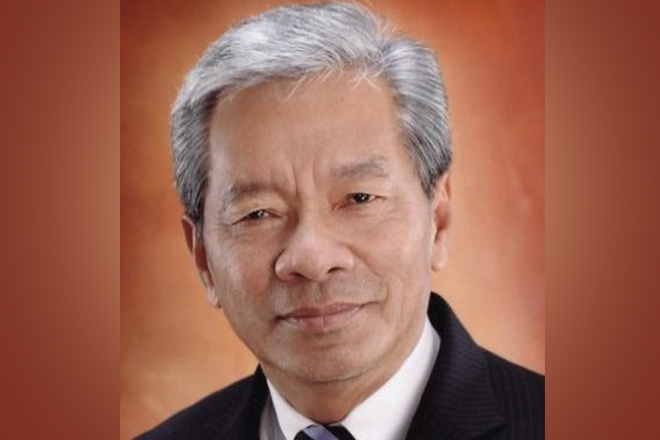
Tan Sri Datuk Amar Dr James Jemut Masing
KUCHING: PRS president Tan Sri Datuk Amar Dr James Jemut Masing considers the representation of Sarawakians in the just-reshuffled federal cabinet as “enough for now” but hopes for appropriate portfolios such as education minister to be allocated to Sarawakians in future.
“What Sarawak needs now is appropriate portfolios to be given to us,” said the Land Development Minister.
Citing the post of education minister as an example, Masing said it was once given to Sarawak in the persons of the late Tun Abdul Rahman Yaacob and the late Tan Sri Dr Sulaiman Daud.
As the portfolio has long been taken away from Sarawakians, he said it is time that it is returned to Sarawak.
“Education minister which used to be allocated to Sarawak should be allocated to us,” he stressed.
After the reshuffle on Tuesday, there are now eight full ministers and two deputy ministers from the state in the federal cabinet.
They constitute about 22 per cent of the 37 ministers and six per cent of the 32 deputy ministers in the federal cabinet, and together make up about 15 per cent of the federal cabinet.
On the whole, state politicians were generally satisfied with the appointment of Dato Sri Wan Junaidi Tuanku Jaafar as Natural Resources and Environment Minister and Masir Kujat as Deputy Home Minister.
However, apart from the portfolios, there were also questions raised on Dayak representation in the federal cabinet.
There are only six Dayak ministers and deputy ministers – Plantation Industries and Commodities Minister Datuk Amar Douglas Uggah Embas (Iban), Human Resources Minister Datuk Seri Richard Riot (Bidayuh), ministers in the Prime Minister’s Department Datuk Seri Idris Jala (Orang Ulu) and Datuk Joseph Entulu (Iban), Energy, Green Technology and Water Deputy Minister Datuk Seri Dr James Dawos Mamit (Bidayuh) and Rural and Regional Development Deputy Minister Datuk Alexander Nanta Linggi (Iban) – which make up nine per cent of the federal cabinet.
Touching on the issue, state BN secretary-general Datuk Dr Stephen Rundi said he basically agreed with the statement made by Chief Minister Datuk Patinggi Tan Sri Adenan Satem on the cabinet reshuffle.
“We are happy because there used to be less Sarawakian representation in the federal cabinet. We may be happy with the progress but we will continue to ask for more representation especially Dayak representation within the federal cabinet,” said the Assistant Public Utilities Minister.
He urged all Sarawakian ministers and deputy ministers to perform the best they can to make the state proud.
“I hope they will perform at par as ministers from other states if not better in delivering quality services to the nation and the people,” said Dr Rundi.
Concurring with Dr Rundi, BN-friendly party Teras secretary general Datuk Sylvester Entrie Muran pointed out that Sarawakians might think that Sarawak, as a fixed deposit for BN, should deserve more to reflect its strong support for the government.
“However, Prime Minister Datuk Seri Najib Tun Razak has the prerogative in the appointment of cabinet posts.
“Given the choice, I hope Sarawak will be given at least an additional deputy minister especially in the Ministry of Agriculture. This is to support the call by our Chief Minister for more rural development in Sarawak,” said the Agriculture (Farmer’s Organisation) Assistant Minister.
Meanwhile, state DAP chief Chong Chieng Jen believed that cabinet representation did not matter as much as the general inherent prejudice against Sarawak in BN policies.
“It does not matter how many ministers we have from Sarawak (in the federal cabinet). It is about the policies of BN which are inherently prejudicial against Sarawak.
“For instance, we have a Sarawakian as the Works Minister, yet the Pan Borneo Highway project is given to an Umno controlled company,” said Chong, who is also Kuching MP as well as Kota Sentosa assemblyman.
He further pointed out that most large infrastructure projects were now not awarded through open tender but via selected tender which would make the cost higher than they should be.
